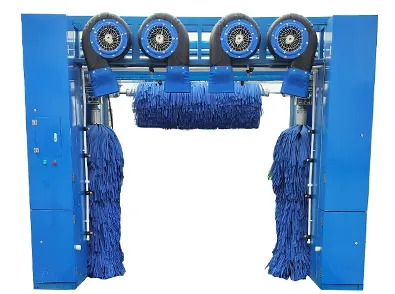Exploring the Impact of Conveyor Cars on Modern Manufacturing Processes
The Evolution of Conveyor Cars Enhancing Efficiency in Material Handling
In the fast-paced world of logistics and manufacturing, efficiency is key. One of the most significant innovations that have revolutionized the movement of materials is the conveyor car. From its inception in the industrial era to its current advanced iterations, conveyor cars have become indispensable in optimizing operations across various sectors.
Understanding Conveyor Cars
At its core, a conveyor car is a mobile platform designed to transport materials, goods, or products within facilities such as factories, warehouses, and distribution centers. Unlike traditional conveyor belts that operate on a static plane, conveyor cars can move along predetermined paths, allowing for greater flexibility in transportation. They can be equipped with various features, such as automated controls, which enable seamless integration into modern production or distribution lines.
The Historical Context
The concept of using conveyors to move materials dates back to the late 19th century. Early iterations were often rudimentary and relied on manual labor to load and unload goods. However, as industrialization progressed, the need for more efficient systems led to the development of powered conveyor systems. This evolution laid the groundwork for the introduction of conveyor cars in the mid-20th century. Manufacturers began to recognize the potential of mobile transport systems to increase productivity and reduce operational costs.
Modern Features and Technology
Today’s conveyor cars are a far cry from their ancestors. They incorporate cutting-edge technology such as automation, sensors, and robotics. Many conveyor car systems are now fully automated, allowing for the smooth and efficient transfer of goods without human intervention. These systems rely on advanced software that can monitor inventory levels, optimize routing, and schedule transport dynamically based on real-time needs.
Moreover, safety features have also seen significant advancements. Many conveyor cars come equipped with obstacle detection systems and emergency stop functions to minimize the risk of accidents. This is particularly important in environments where heavy machinery and personnel interact closely.
Applications Across Industries
conveyor car

The versatility of conveyor cars makes them applicable across a wide range of industries. In manufacturing, they streamline production lines by ensuring a steady flow of materials from one process to another. In warehouses, conveyor cars enable efficient order picking and fulfillment, drastically reducing the time it takes to process shipments. Retailers have also adopted conveyor car systems in distribution centers to manage inventory more effectively and enhance delivery speed.
For the automotive industry, conveyor cars are crucial in assembling parts and components efficiently. They ensure that every step of the assembly line is synchronized, reducing idle time and maximizing output. Similarly, the food and beverage sector utilizes conveyor cars to transport products through various stages of processing, packaging, and distribution.
Environmental Impact and Sustainability
As industries increasingly focus on sustainability, conveyor cars also play a role in reducing environmental impact. By enhancing efficiency, these systems can minimize energy consumption and reduce waste in transportation. Furthermore, many companies are investing in electric-powered conveyor cars that produce fewer emissions compared to traditional combustion engine systems, aligning with global sustainability goals.
Challenges and Future Directions
Despite their numerous advantages, the implementation of conveyor car systems is not without challenges. Initial costs, maintenance, and the need for specialized training can present barriers for some organizations. However, as technology continues to advance and costs decrease, more businesses are recognizing the long-term benefits of integrating conveyor cars into their operations.
Looking to the future, the potential for further innovation in conveyor car technology is substantial. Developments in artificial intelligence and machine learning could lead to even smarter systems capable of predictive maintenance and autonomous operation. The integration of IoT (Internet of Things) technology may further enhance the capabilities of conveyor cars, allowing for real-time data analysis and better decision-making.
Conclusion
In summary, conveyor cars have become a vital component of modern material handling systems. Their evolution mirrors the advancements in technology and industry practices, making them essential for enhancing efficiency, safety, and sustainability in various sectors. As we continue to innovate and adapt, the future of conveyor cars looks promising, with the potential to redefine how goods are moved in an increasingly complex global market.




